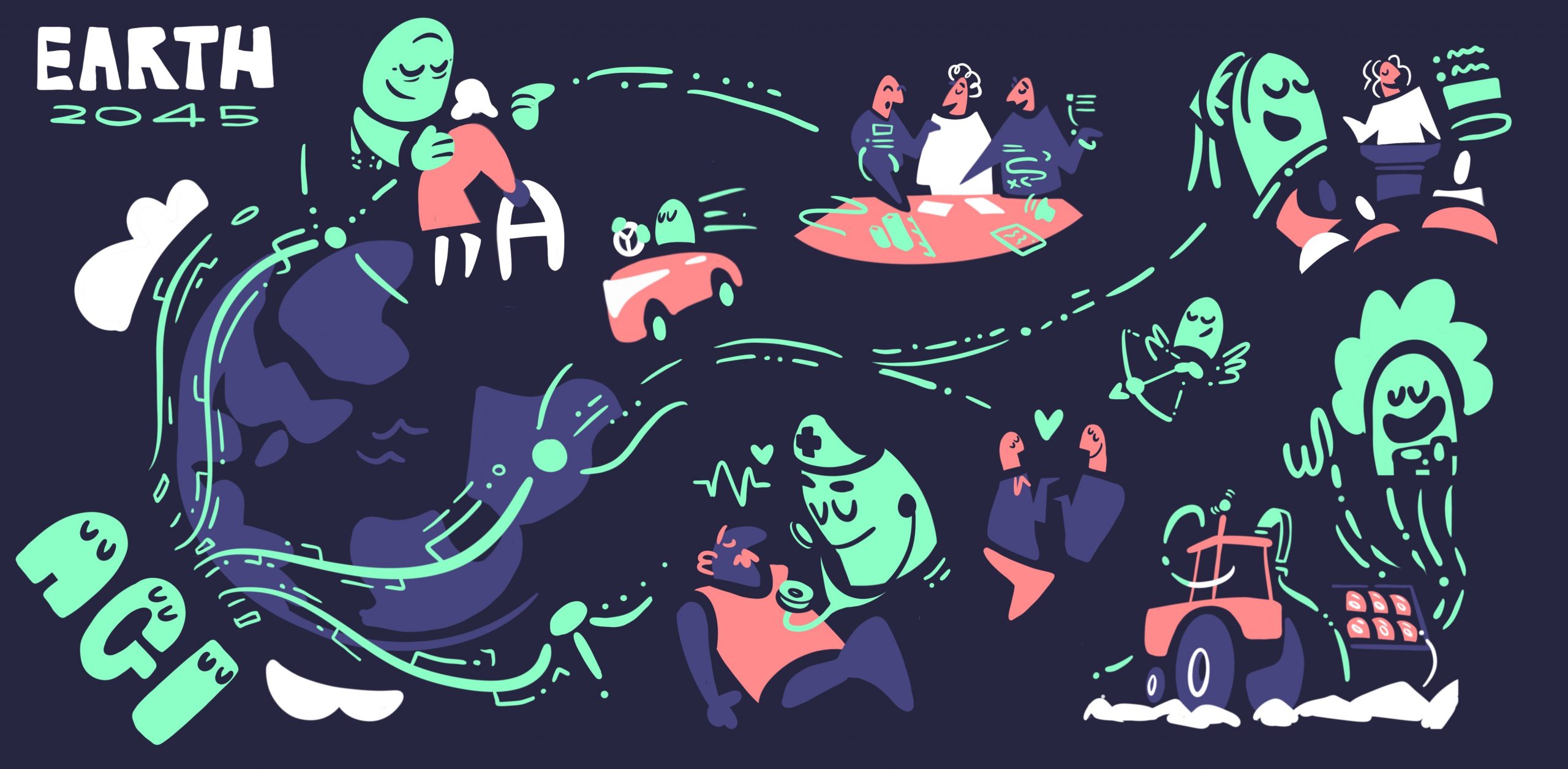Earlier this year, the Future of Life Institute announced a competition to design visions of a plausible, aspirational future where humanity coexists with artificial general intelligence. Out of ~150 submissions, twenty finalists have been chosen — you can read them all here!
The Future of Life institute would love if you read some finalists and submitted feedback about the scenarios. Please note that I, Jackson Wagner, am not affiliated with FLI — rather, I’m one of the contestants! (Please also note that the US-based FLI is apparently totally different from the Oxford-based “Future of Humanity Institute”.) Since I’m not affiliated with FLI, I’m free to play favorites among the different finalists, so here are my suggestions of the most interesting reads.
My Favorite Entries
World-313
This entry comes from an impressive seven-person team who have backgrounds in the study of AI governance and existential risk. In contrast to the wild sci-fi of other entries, this scenario has a kind of professional, sensible, “consensus optimistic baseline scenario” feeling. If you would like to read a polished future-history of AI as it might appear in a UN report or Kim Stanley Robinson novel, these people have got what you’re looking for.

World-281
Maybe you don’t want UN reports. Maybe you want stories where a superintelligent AI designs a symbiotic fungal organism to live inside human bodies and improve peoples’ health and intelligence, and where humanity hashes out the Long Reflection by building hive-mind superstructures orbiting the sun! This scenario is here for you.

World-88
Of course I think my own entry is the best and most deserving of attention!! Here is the summary I wrote for my scenario:
Look around at humanity’s fractious politics, at the essentially lawless competition of international relations and war, and at our fumbled response to familiar threats like viral pandemics. Our civilization isn’t exactly well-prepared to safely manage the deployment of unpredictable and incredibly powerful AI technology. But how do we get from where we are now, to where we want to go? In our utopian scenario, we imagine:
1. How governments could use mechanisms like prediction markets and liquid democracy, along with AI-enhanced research/analysis tools, to collectively make wiser decisions and capably execute big projects.
2. How positive changes could spread to many countries via competition to achieve faster economic growth than rivals, and via snowball effects whereby passing one reform makes it easier to pass others.
3. How the resulting, more-capable civilization could recognize the threat posed by misalignment of powerful AI systems, and internationally coordinate to create a solid plan for safely developing aligned superintelligent AI.

World-429
This entry brings a strong dose of Robin-Hanson-esque pessimism (and also realism) about human social motivations and the inadequacy of society’s leading institutions. Its summary:
AGI is kept at a distance from practically impacting the world while narrow AI remakes the world completely. Most people don’t know or care about the difference and have no idea how they could distinguish between a human or artificial stranger in the Metaverse.
It also features a beautifully-written short story and accompanying musical media piece, which explore what it might be like to experience superhumanly high-quality AI-generated art.
Other Finalists
There are lots of great art pieces and interesting ideas mixed in with the other finalists. World-262 features an entire four-page illustrated comic narrating their activist/leftist vision of a future utopia featuring government by sortition and AI that lets us communicate with animals! World-165 is from a Kenyan team, and features "digital nations" superseding today's political divisions:
So, there is a lot of fun stuff in there. Winners will apparently be announced in "late June" -- but I don't know for sure, I'm not affiliated with FLI!


Oh, I wasn't implying any link between worlds 335 and 281, I was just riffing off the idea of sentient and/or symbiotic fungi. I actually think by tying them together in the main body of the post it confusing things.